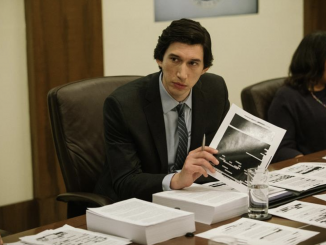
Going To Mars: The Nikki Giovanni Project, now streaming on HBO/Max; documents the celebrated poet and activist. Though it never wavers from her harsh and hard won personal and racial truths, it is one of the most uplifting artist profiles I’ve seen. Winner of The Sundance Documentary Grand Jury Prize, it may indeed be a roadmap to survive and thrive at any age. For many of her fans in the documentary it already has; as evidenced in the performances at venues like the Apollo Theater where fans testify to the effect Nikki Giovanni had on their lives. The filmmakers had to contend with Nikki Giovanni’s memory loss but rather than hiding it, they put creative possibilities front and center by starting with her saying, “I don’t remember a lot of things, but a lot of things that I don’t remember. I don’t choose to remember. I remember what’s important and I make up the rest.” (Nikki laughs) “That’s what storytelling is all about.”

To complete her story directors Joe Brewster and Michèle Stephenson have blended footage of a young Nikki Giovanni with her current persona so skillfully, it is obvious that there is a through line from the fearless genius of the 25 year old Giovanni to the 75 to 80 year old in the film. They were aided by Taraji P. Henson, whose powerful readings indistinguishable from the poet’s own voice in the film, inhabit the poet’s persona as the documentary moves through time.

Michèle Stephenson, “We didn’t know how we were going to get there – but we had a vision and we knew we were going to time travel. The vérité that we shot over the six to seven years that we were with her; her performances, also a deep dive into the archival performances and then her poetry, had to be the emotional center.” The delays in production from the pandemic and funding allowed Michelle and Joe time to “refine our editing style and tone.” Editor Terra Long realized the director’s vision of pairing visual and auditory “magical realism and impressionistic elements with Nikki’s poetry”, by creating stunning visuals that take you on the rocket ship of her imagination.
The filmmakers chose the title for the film by drawing inspiration from Nikki Giovanni’s epic poem Quilting The Black Eyed Pea (We’re Going To Mars), which was published after a speech in front of NASA emphasizing the need for black women and men to become part of our journey into space. My favorite section starts with:
“We’re going to Mars because whatever is wrong with us will not get right with us so we journey forth carrying the same baggage but every now and then leaving one little bitty thing behind.”
Though her poetry does take a starring role, the truth that she speaks holding her own with James Baldwin or in an auditorium of adoring fans is poetry. No matter what the stakes are, it’s always her answers, her truth not what we or an interviewer dictates or expects. Yet her answers are often voiced with a smile or a laugh and an elevated sense of humor. “I’m fortunate that, you know, I’m polite, but I’m not friendly,” Nikki Giovanni explained.
Many people focus on Nikki Giovanni’s abuse she suffered as a child. But in the film when Joe Brewster, a Harvard trained psychiatrist, asks Nikki to talk about her father Gus and his abuse, Giovanni fires back, ”You’re wanting me to go to someplace that I’m not gonna go because it’ll make me unhappy, and I refuse to be unhappy about something I can do nothing about.”

Brewster, who bravely kept his question and her response in the film commented, “We wanted her to tell us about her relationship with her father, Gus, who is a complicated, abusive personality. She didn’t do that. We moved to our alternative plan. We used Nikki’s poetry, her lectures and previous interviews with James Baldwin to develop the Gus’ character.” When Nikki Giovanni does talk about Gus and her childhood, she possesses a perspective and emotional understanding, which is eloquently expressed in her poem Nikki Rosa; “Your biographers never understand your father’s pain, as he sells his stock and another dream goes.” Despite their financial hardships she emphasize that the love they shared as a family was their “wealth.”
Nikki Giovanni has endured a number of tragedies among them, fighting cancer and having taught and known the victims of the Virginia Tech Shooting where she gave an incredibly moving speech at the memorial convocation. She continues her quest with unabashed energy. What keeps Nikki Giovanni thriving I believe, is she feels tasked with a mission be it here or on our way to Mars, “When all, for lack of a better word, the shit hits the fan, you’re still gonna stand up and do the right thing.” A sense of duty is often what attracts us into service and gifts us with a purpose. The movie also gifts us, with a look into the heart and mind of someone who might be markedly different than us. Yet, we are touched by her humanity, informed by her resilience and maybe shown a path to temper the divisive typecasting so prevalent in todays society.
Really, I could have filled this review with quotes from Nikki Giovanni but that would be like a spoiler, because when they are voiced by her or those who carry out her vision is when they come alive and that song is hers to sing. The film, which had limited screenings this fall to qualify for The Oscars is due for release on HBO and HBO Max streaming platform in 2024.




Be the first to comment